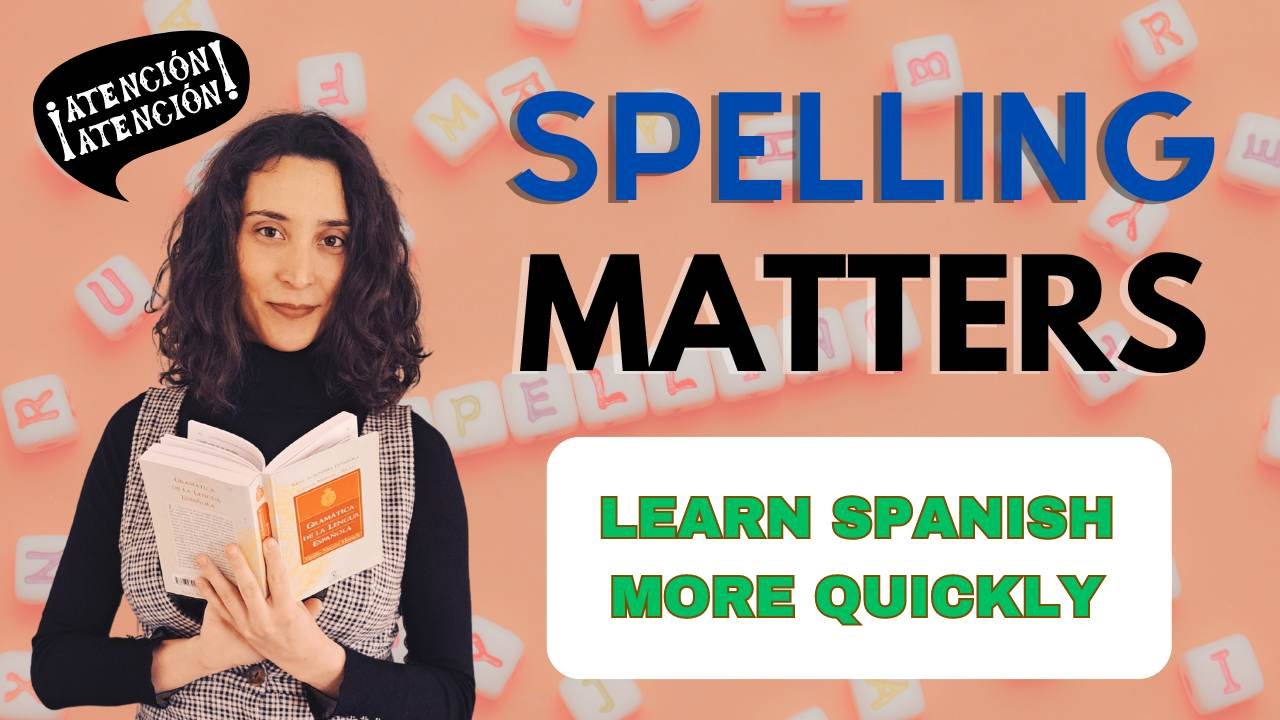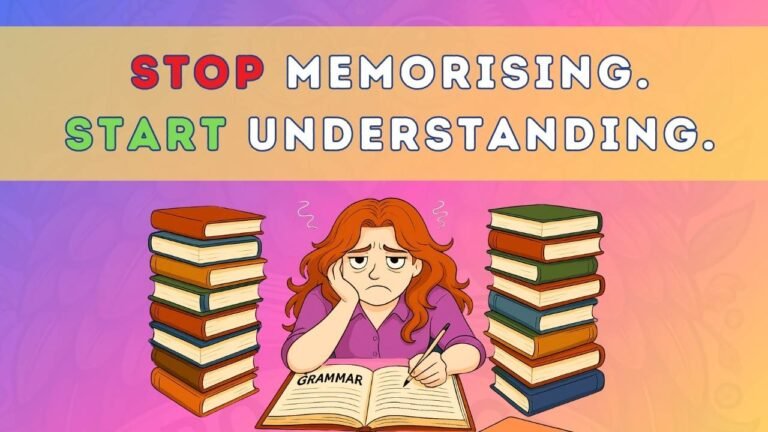Learning Spanish is an exciting journey, full of vibrant sounds, rich vocabulary, and a deep connection to history and culture. But while many Spanish learners focus on conversation skills, pronunciation, or grammar, one often overlooked skill can dramatically accelerate your mastery of the language: correct spelling.
You might have heard the adage, “Spanish spelling is easy, you just write it as you hear it.” This isn’t entirely wrong—Spanish is a phonetic language with a fairly transparent orthographic system. However, the reality is more nuanced. Even after learning the rules, many learners and even native speakers find themselves googling words or making spelling mistakes. The truth is, spelling plays a more significant role in language acquisition than it first appears.
In this blog post, we’ll explore why mastering Spanish spelling not only improves your accuracy but also enhances your understanding of the language. We’ll also dive into common pitfalls that learners face and provide tips to help you avoid them. So, let’s begin our exploration into how spelling correctly will help you learn Spanish more quickly!
WHAT IS ORTHOGRAPHY?

Before we delve deeper into the relationship between spelling and language learning, let’s clarify a basic concept: orthography.
Orthography refers to the set of conventions for writing a language, including its spelling rules, punctuation, and letter usage. In Spanish, orthography (ortografía) involves applying phonetic rules, which means that words are usually spelled the way they sound. However, as you’ll soon see, it’s not as straightforward as it may seem.
At its core, orthography links phonemes (sounds) to graphemes (written symbols or letters). This connection between what we hear and how we write is crucial for language learning because it bridges spoken language with its written form. In Spanish, for example, most phonemes have a predictable written form, but there are some tricky areas that can trip up even the most diligent learners.
COMMON SPANISH SPELLING MISTAKES
Even with a relatively consistent phonetic system, Spanish learners—and native speakers—frequently make spelling errors. This is especially true when learning to distinguish between certain letters or graphemes that may sound similar. Understanding these challenges can significantly improve your Spanish learning speed and accuracy.
1. B vs V
One of the most common spelling dilemmas in Spanish is the confusion between the letters b and v. In most dialects of Spanish, these letters are homophones, meaning they sound exactly the same. For example, the word “vaca” (cow) and “boca” (mouth) are pronounced identically. Yet, choosing the wrong letter can completely change the meaning of a word.

HOW TO AVOID CONFUSING SPANISH B&V
- Use b after the consonants l and r, as in blanco (white) and bronca (scolding).
- Use b after the letter m: ambos (both), but after n, use v, as in envidia (jealousy).
- After the prefixes ad- or sub-, always use v: advertencia (warning), subvención (funding).
- Words like “haber” (auxiliary verb) and “a ver” (let’s see) are frequently confused online due to their similar pronunciation. Memorizing phrases and contexts will help you avoid these common errors.

While these tricks can help, many instances of b vs. v simply need to be memorized. Familiarizing yourself with high-frequency words will build your spelling instinct, saving you from having to stop and check whether it’s “vuelvo” (I return) or “buelvo” (incorrect spelling!).
2. THE SILENT H
The silent “h” in Spanish is another frequent cause of confusion. Although h is never pronounced, its presence in words like “hora” (hour) or “hombre” (man) serves an important etymological function. Its silent nature often leads learners to omit it, causing spelling mistakes.
HOW TO AVOID SILENT H MISTAKES
- Unfortunately, there’s no phonetic trick to knowing when to write h. The best advice is to memorize high-frequency words.
- The verb echar (to throw) is often confused with hecho (done), particularly in phrases like te echo de menos (I miss you). Remember, hecho comes from hacer (to do), while echar is a verb in its own right.
- Recognizing homophones like “hola” (hello) and “ola” (wave) will help you spell correctly based on context.

Mastering the silent “h” requires repetition and reading. The more frequently you encounter these words in context, the more familiar you’ll become with their spelling.
3. SPANISH S,C and Z
In Latin American Spanish, the letters s, c, and z are all pronounced like s before e and i. This can make spelling difficult, especially when you’re writing words that use c or z instead of s. For example, c before e or i is pronounced like the English s, but in Spain, it’s pronounced like the th in “think.”
HOW TO AVOID S, C AND Z CONFUSION
- C is used before e or i: cinco (five), cerca (near).
- Z is used before a, o, or u: zorro (fox), zanahoria (carrot).
- Words with zi and ze typically come from other languages, like zinc (zinc) or zenit (zenith).

If you’re learning Latin American Spanish, you’ll need to pay particular attention to these distinctions because they don’t exist in your everyday speech. Writing exercises are extremely helpful for internalizing the correct usage of s, c, and z.
4. G AND J
In Spanish, g and j are pronounced the same when they come before e or i. Both make the harsh /h/ sound, like the h in the English word “house.” Because of this, learners often confuse words that use g with words that use j.
HOW TO AVOID G AND J CONFUSION:
- G is used with e and i in words like gente (people) and genial (brilliant).
- J is used in words like jalapeño (jalapeño), juguete (toy), and jueves (Thursday).
The difference between g and j can usually be traced back to etymology. For instance, the word mujer (woman) comes from the Latin mulier, while many j words, such as jinete (horseman), come from different origins.
Mastering these spelling distinctions will not only prevent spelling errors but will also deepen your understanding of Spanish etymology, giving you a richer appreciation of the language’s history.
5. Y AND LL
Traditionally, y and the digraph ll were pronounced differently. In many regions, ll was pronounced like the li in “million,” while y was pronounced like the y in “yes.” However, in modern Spanish, most speakers no longer differentiate between the two sounds, a phenomenon known as yeísmo.
HOW TO AVOID Y AND LL CONFUSION:
- Only y can appear at the end of a word, such as rey (king) or voy (I go).
- Only y can follow a consonant, as in inyectar (inject) or adyacente (adjacent).
- Words like cayó (he/she fell) and calló (he/she was silent) are spelled differently based on context.
The best way to master y and ll distinctions is through reading and practice. Over time, your brain will begin to recognize patterns, helping you avoid common spelling errors.
WHY CORRECT SPANISH SPELLING MATTERS

Now that we’ve explored some of the most common Spanish spelling mistakes, let’s look at how mastering spelling can significantly improve your overall learning experience. Spelling is not just a mechanical process; it has far-reaching effects on your vocabulary retention, reading skills, and even your confidence in speaking.
1. ENHANCED VOCABULARY RETENTION
When you spell a word correctly, you engage multiple parts of your brain, reinforcing your memory of the word. Writing words out by hand, in particular, creates a strong connection between the visual representation of the word and its meaning. This process improves long-term retention, making it easier to recall vocabulary when you need it.
2. IMPROVED READING SKILLS AND UNDERSTANDING
Spelling and reading go hand in hand. When you know how words are spelled, you can recognize them more quickly when reading, which enhances your comprehension. This is especially true for homophones like hola and ola or echar and hecho, where the context and spelling help differentiate meaning.
3. GREATER CONFIDENCE IN SPEAKING
Believe it or not, spelling can also boost your speaking confidence. When you’re sure of how a word is spelled, you’re more likely to pronounce it correctly. Understanding the structure of a word gives you insight into how it should sound, and you’ll be less hesitant when speaking.
4. SOCIAL PRESTIGE AND PROFESSIONALISM
Correct spelling also has social and professional benefits. In today’s world of instant messaging and social media, we often abbreviate or overlook correct spelling. However, using proper spelling still carries a sense of social prestige. It signals to others that you have a solid grasp of the language and that you value precision.
This is especially important if you plan to take official Spanish language exams like the DELE. The DELE evaluates your writing skills as part of its assessment, and correct spelling is essential for achieving a high score.
In conclusion, while Spanish spelling might seem like a minor aspect of language learning, it plays a pivotal role in accelerating your progress. From distinguishing homophones to recognizing complex patterns of graphemes and phonemes, spelling fosters a deeper connection to the language. It enhances vocabulary retention, improves reading comprehension, and even boosts your speaking confidence.
The key to success lies in repetition and exposure. Read actively, write regularly, and immerse yourself in written Spanish as much as possible. The more you practice, the more intuitive Spanish spelling will become.
In the end, spelling is not just about following rules—it’s about mastering the language at a deeper level. So, the next time you’re tempted to skip over those tricky spelling rules, remember: correct spelling will help you learn Spanish more quickly and thoroughly than you ever thought possible.
By focusing on mastering Spanish orthography, you’ll be well on your way to becoming a fluent, confident Spanish speaker. If you’re looking to continue improving your skills, don’t forget to check out our other language learning tips on the Romance Language Centre blog!
LEARN SPANISH WITH ROMANCE
At Romance Language Centre, we specialize in helping learners navigate the challenges of Spanish, from beginners to advanced students. Our structured courses, combined with personalized instruction, ensure that you have the tools and support you need to master even the trickiest aspects of the language.
Are you a curious, serious, hard-working and committed learner who wants to learn Spanish long-term but you don’t know where to start nor whom to believe?
You’ve wasted money on crash courses and language apps, spent years “picking up” Spanish, doing language exchanges, immersing yourself, and paying “repeat after me” tutors, yet you still struggle to use it functionally and effectively?
Maybe you spend hours listening to music and watching movies in Spanish, but none of it ever really sticks?
You think there is something wrong with you if you are not fluent after a year?
You lack structure, continuous support and confidence?
Maybe you just want expert guidance and honest, regular feedback?
If you can relate to our students, maybe we could be just what you are looking for and as we open our 2024/25 enrolments, let us show you how learning occurs RLC!
We are not for everyone, but we might be just for you!
Whether you’re just starting out or ready to take your Spanish to the next level, we’re here to help. Book a FREE consultation today and let’s map out a learning plan that works for you. With our expert guidance and a focus on structured learning and spaced repetition, you’ll be navigating even the most complex grammar with confidence in no time. Sign up now to start your journey toward fluency!
















